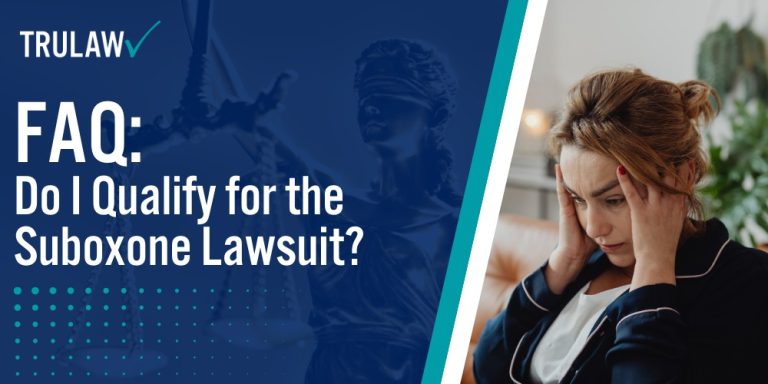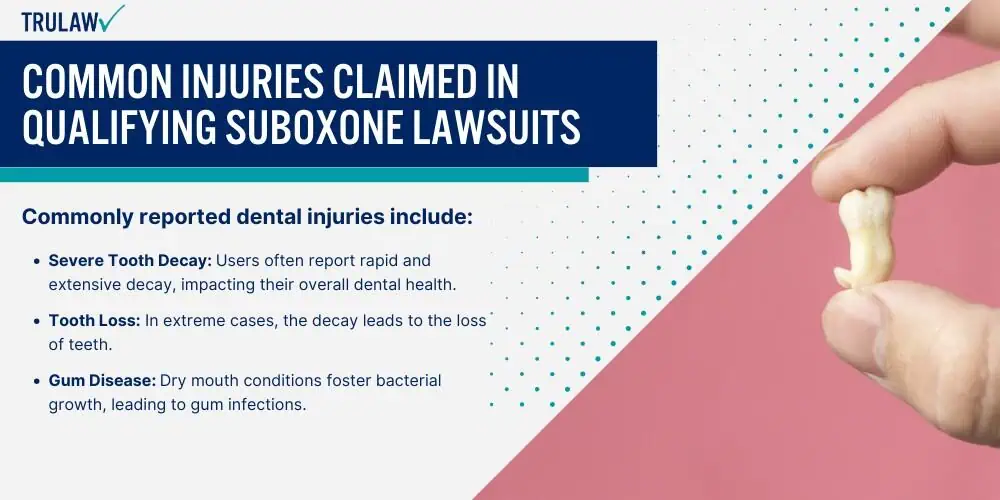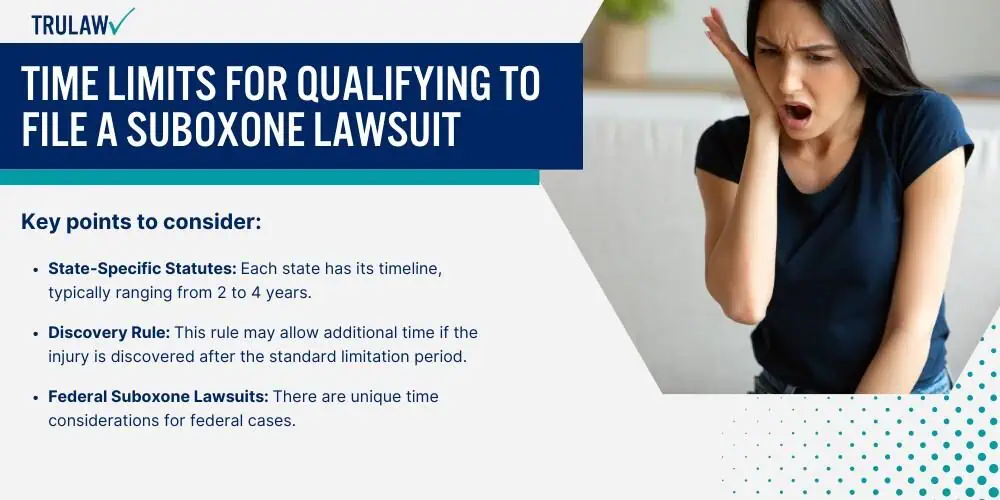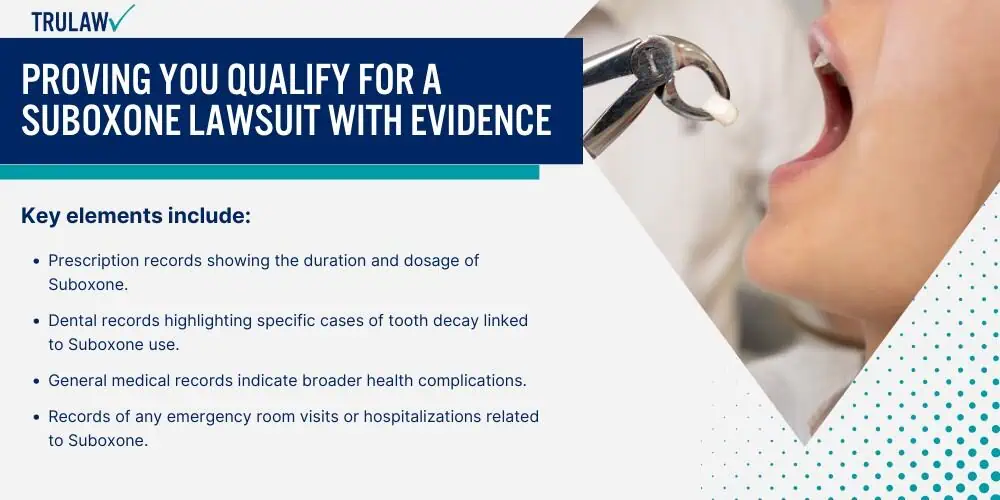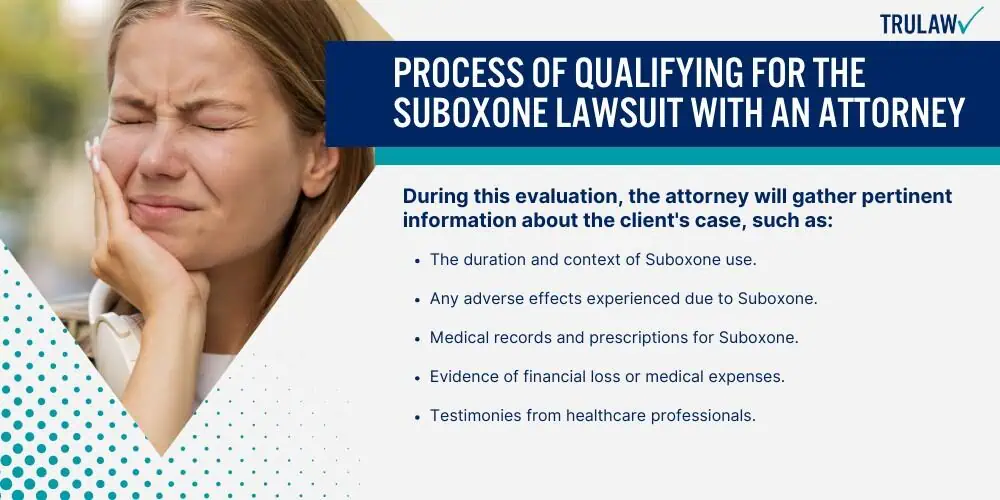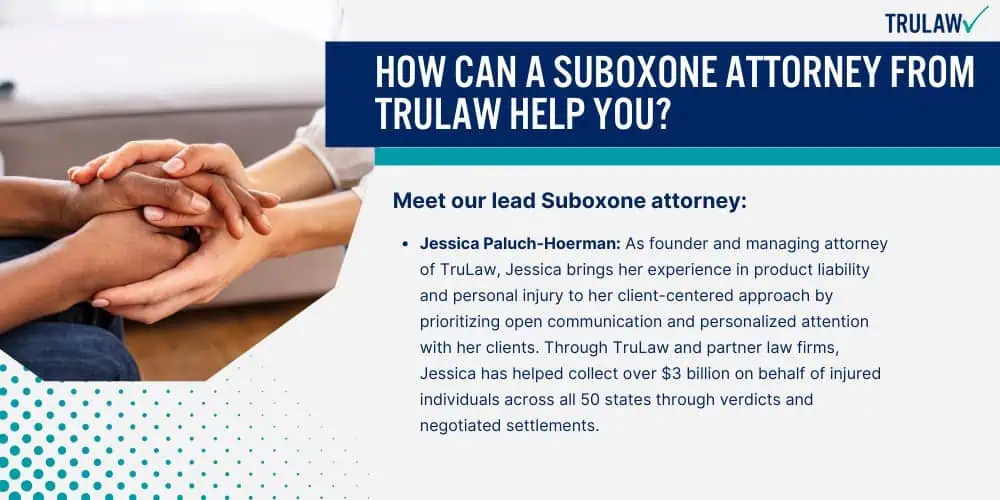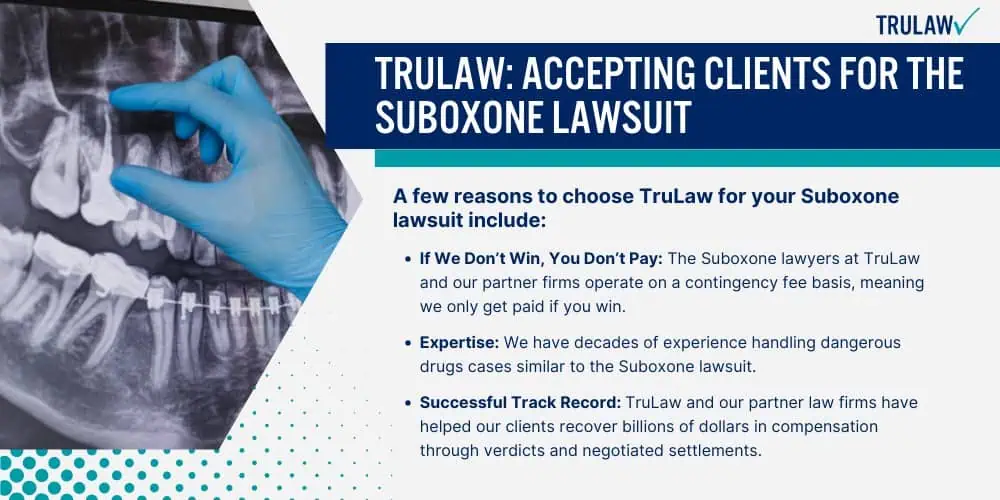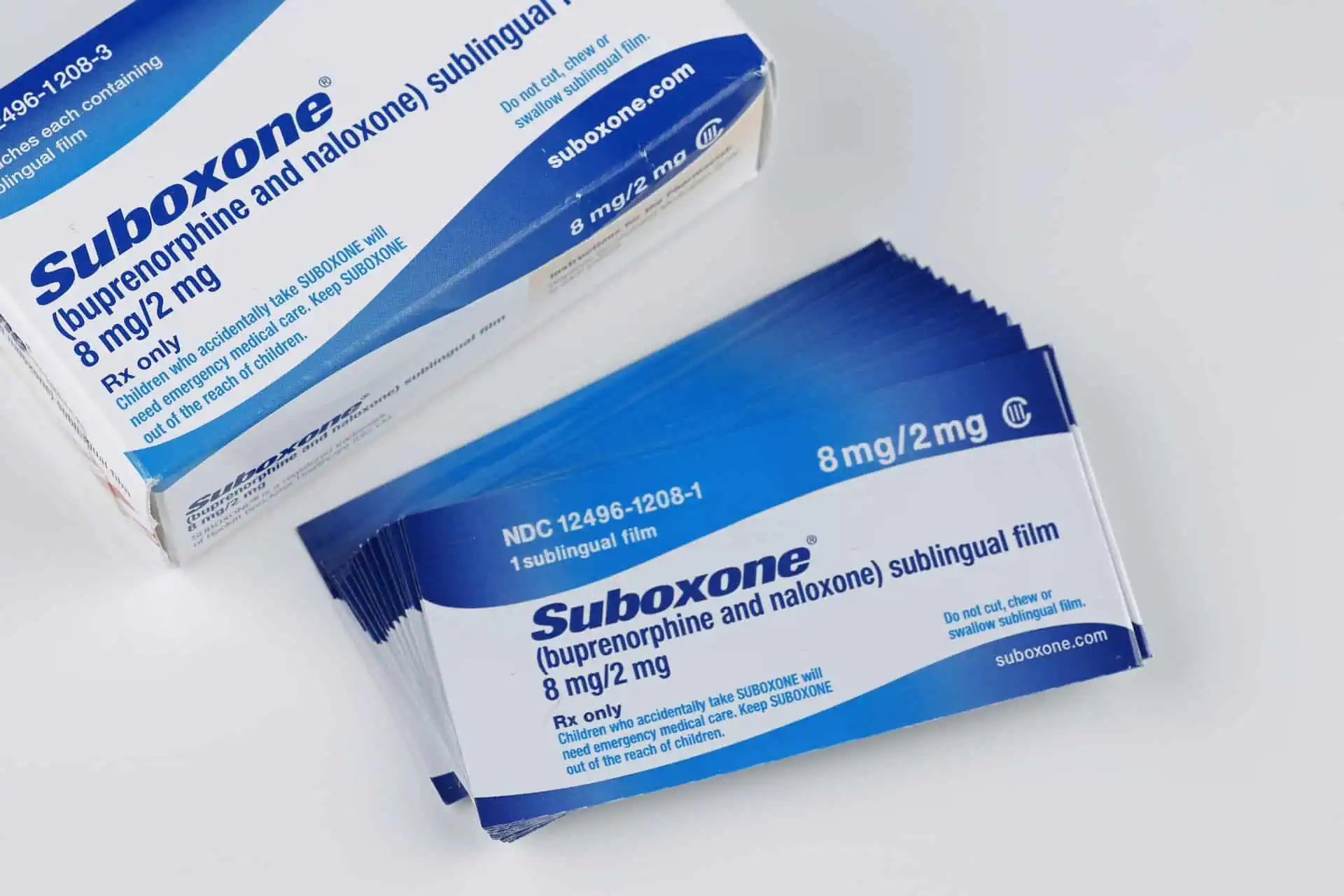To qualify for a Suboxone lawsuit, individuals must meet specific criteria.
This includes both the correct usage of the drug as prescribed and proof of harm caused by its use.
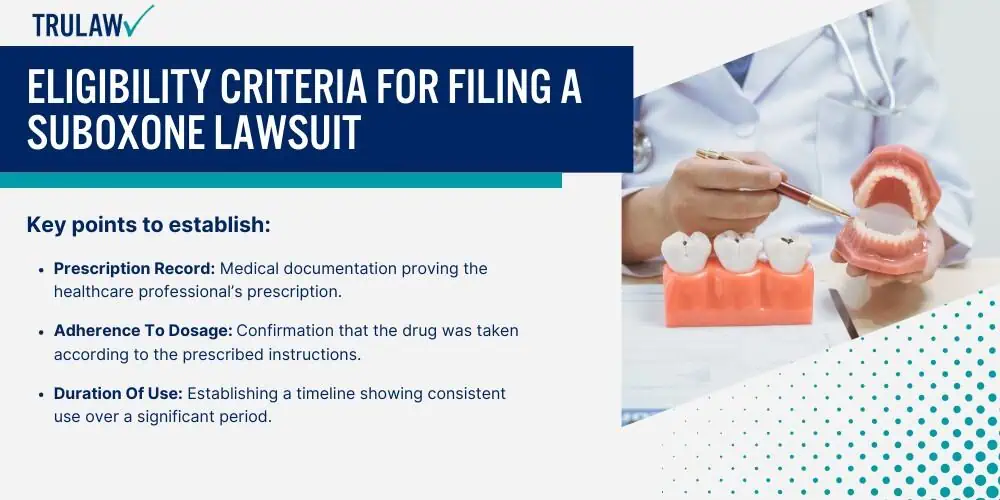
Prescribed and Used Suboxone as Directed
Persons looking to join a Suboxone lawsuit must have been prescribed Suboxone by a licensed healthcare provider.
This ensures that the drug was intended for opioid addiction treatment and not misused.
Key points to establish:
- Prescription Record: Medical documentation proving the healthcare professional’s prescription.
- Adherence To Dosage: Confirmation that the drug was taken according to the prescribed instructions.
- Duration Of Use: Establishing a timeline showing consistent use over a significant period.
- Professional Oversight: Evidence of regular monitoring by the prescribing physician.
Suffered Injury or Harm Linked to Suboxone Use
Eligibility also hinges on whether the individual suffered documented harm directly related to Suboxone use.
This can include physical, emotional, or economic damage.
Key points to establish:
- Medical Reports: Detailed medical records showing adverse effects linked to Suboxone.
- Expert Testimony: Opinions from medical experts linking the harm to Suboxone use.
- Injury Specifics: Clear description of the injuries or conditions developed from the drug.
- Healthcare Costs: Documentation of incurred medical expenses or required treatments.
